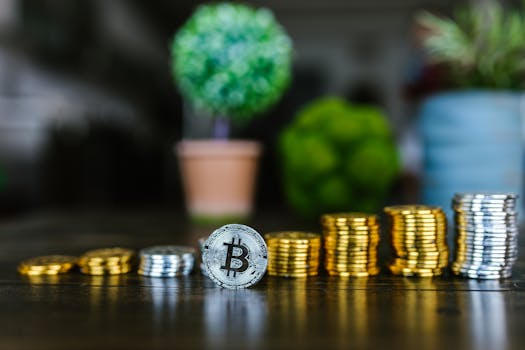Blockchain Authentication: Fighting Counterfeits and Greenwashing
With the rise of counterfeit products flooding the market and the growing concern over greenwashing, it has become increasingly challenging for consumers to trust the products they purchase. In response to this issue, blockchain technology has emerged as a potential solution, providing a secure and transparent way to authenticate products and combat counterfeits and greenwashing. In this article, we will explore the concept of blockchain authentication and how it is revolutionizing the way we shop and consume goods.
The Problem with Counterfeits and Greenwashing
The prevalence of counterfeit products has become a significant problem for businesses and consumers alike. According to the Global Brand Counterfeiting Report 2018, the global market for counterfeit goods is estimated to reach $1.82 trillion by 2020. Counterfeit products not only damage a company’s reputation but also pose a threat to consumer safety. From fake luxury goods to counterfeit medicine, the production and sale of these fraudulent products have proven to be a lucrative and widespread issue.
Greenwashing, on the other hand, refers to the misleading and false claims made by companies to give consumers the impression that their products or services are environmentally friendly. This deceptive marketing tactic not only deceives consumers but also undermines the efforts of genuinely eco-friendly businesses.
The Role of Blockchain in Authentication
Blockchain, the technology behind cryptocurrencies such as Bitcoin, offers a decentralized and tamper-proof way to store and share data. In the context of authentication, blockchain acts as an immutable ledger that records all the transactions and information related to a particular product. Each product is assigned a unique digital signature that can be traced back to its origin, making it virtually impossible to replicate or alter.
Blockchain authentication works by creating a digital fingerprint of a product that contains all its relevant information, such as the manufacturer, production date, and distribution chain. This information is then stored on the blockchain network, where it can be accessed and verified by anyone with the appropriate permissions. This process ensures that the data is tamper-proof and eliminates the possibility of fraudulent activities.
Combatting Counterfeits with Blockchain
The ability to trace a product’s entire supply chain using blockchain technology makes it a powerful tool in fighting counterfeits. The transaction records on the blockchain provide an unbroken chain of custody, enabling consumers to verify the authenticity of a product before making a purchase. This level of transparency not only protects consumers but also helps businesses identify and eliminate any potential fraudulent activities in their supply chain.
One notable example of blockchain disrupting the counterfeit industry is the partnership between IBM and Maersk to create a blockchain-based platform for global trade. By using blockchain technology, the platform creates an unalterable record of transactions, making it difficult for counterfeit products to enter the supply chain.
Unmasking Greenwashing
In addition to combating counterfeits, blockchain can also expose greenwashing attempts by businesses. By storing verifiable and accurate data on the blockchain, companies cannot make false environmental claims without being held accountable. This allows consumers to make educated decisions and support truly sustainable and responsible businesses.
Another way blockchain can expose greenwashing is through the concept of “smart contracts.” These digital agreements automatically execute and enforce the terms written into them, ensuring that companies meet their sustainability claims or face consequences.
Final Thoughts
Blockchain authentication is a game-changer for businesses and consumers alike. By providing a secure and transparent way to authenticate products, it not only combats counterfeits but also exposes greenwashing attempts. As this technology continues to evolve and become more accessible, a future where consumers can trust the products they purchase is not far-fetched. With blockchain, we can ensure that the products we buy are genuine and produced ethically, making the world a better place one purchase at a time.






